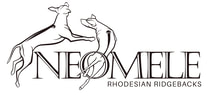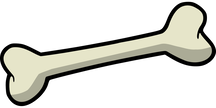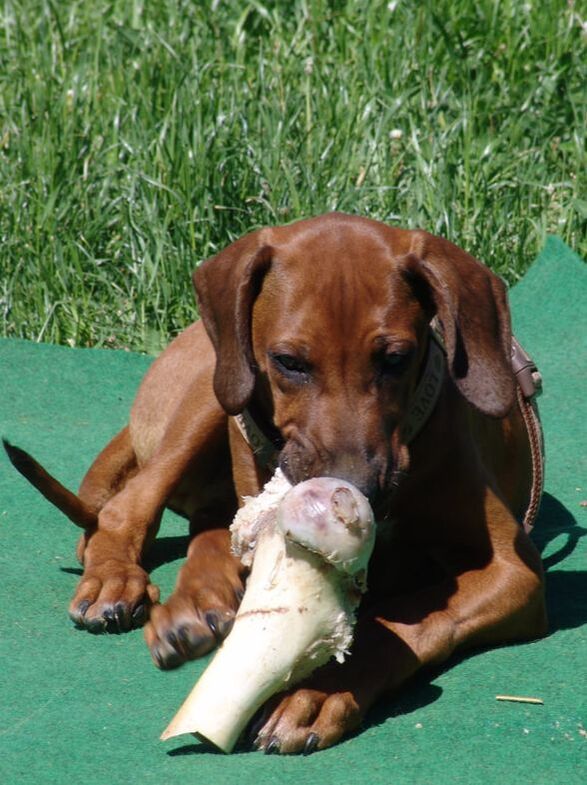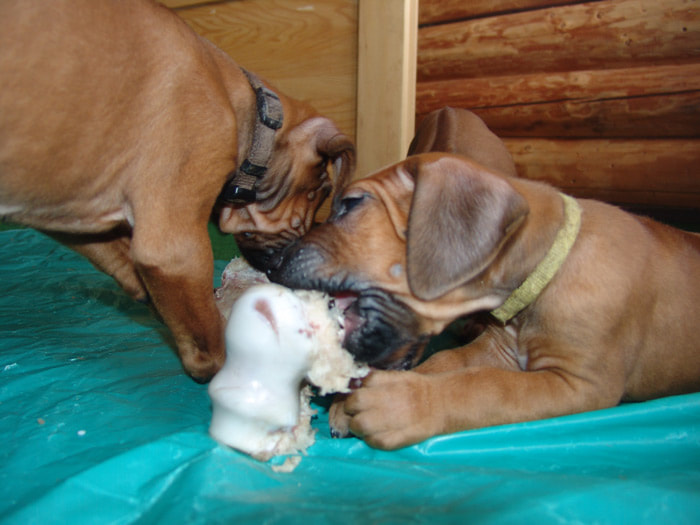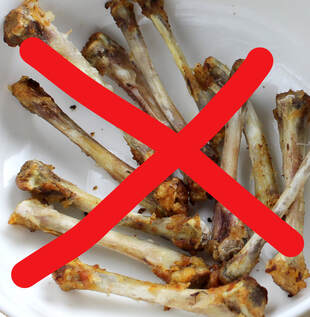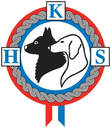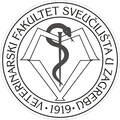|
What dog doesn't love a good bone? Just make sure you are buying a good one! From time to time it is ok to give your dog to chew a bone. The teeth plaque will be cleaned, your dog will have fun and will be mentally stimulated but there is a danger in those tasty bones! Chewing is a natural instinct for dogs. Bones are a great way to keep happy a dog who is bored! Like beef femurs or marrow bones, "Recreation bones" are great for letting your dog activate their jaw but aren’t to be consumed. Chewing is a favourite pastime for most dogs and giving them a bone will help to keep them both physically and mentally occupied. Usually, chewing bones keeps your pup out of trouble and ensures that they are chewing on something healthy instead of your shoes. Bones are a good source of minerals and other nutrients and help satisfy your dog. Chewing stimulates saliva enzymes and helps prevent plaque buildup on teeth and possible gum disease. Be sure to choose bones that contain marrow and connective tissues, as this will provide the most nutrition. Bones contain a variety of minerals that can aid in skin and coat health, and the marrow and cartilage are good sources of collagen. Bones with connective tissues attached are especially beneficial for skin and coat health. However, many veterinarians believe it just isn’t worth the risk of serious injuries to give your dog a bone. If you are considering giving him a bone, here are some rules to follow for his safety. Bones should only be given to dogs under supervision, and they should never be left alone with them! Don’t give your dog the wrong kind of bone. Ideal bones for dogs are round bones with bulges or lumps at either end, like leg bones. Many other types of bones are easier for dogs to break with their bite, and are more likely to cause problems.. No chicken drumsticks to dogs, nor wishbones. Don't feed your dog with pork bones or rib bones. They're more likely to splinter than other types of bones. Don't give your dog fish bones! Look for beef, elk, moose, or deer antlers and bones. Knuckles Hock bones Kneecaps Necks Don’t give you dog cooked bones of any kind.
Cooked bones, including those that come from table scraps, are not safe for dogs to eat. They can easily break and splinter. Cooked bones are not recommended under any circumstance. Don’t let your dog chew any kind of bone into small pieces. Don’t give your dog chunks of bone that can cause blockages. Don’t give your dog a bone if he has stomach problems. Don’t give your dog a bone to chew on if there’s another dog around. Never let a dog bury a bone, nor dig them up later on to eat! Old or buried bones grow bacteria on them that can cause infection. Offer raw meat bones. One disadvantage about raw bones is that they can carry bacteria like salmonella or e-coli and can spoil in a few days if not eaten. Dogs' strong stomach acid helps break bones down, and kills potential bacteria but it is the best that you always freeze the bone, and then defreeze it to the room temperature before you give it to your dog! Take the bone away from your dog after 10-to-15 minutes, and put it in the refrigerator. Dispose of a bone after few days. Never let your dog to eat the bone to its end because there is a danger that the dog will swallow when it becomes small. Once the bone has been picked clean of all bits and yummy flavouring, then take the bone away and discard it. Give your Ridgie a large bone!
0 Comments
|
AuthorMaja Kljaić Archives
February 2023
Categories
All
|
|
UZGAJIVAČNICA RODEZIJSKIH RIĐBEKA
RHODESIAN RIDGEBACK KENNEL NEOMELE ul.1.maja 70 Reka, 48 000 Koprivnica CROATIA |
ⓒ 2024 NEOMELE - RHODESIAN RIDGEBACKS
All content and data on this website is protected by copyright.
No part of this website may be used, reproduced or utilized in any form or by any means, electronic or mechanical, without permission in writing from
Neomele kennel/Maja Kljaic & Lela Trescec.
All content and data on this website is protected by copyright.
No part of this website may be used, reproduced or utilized in any form or by any means, electronic or mechanical, without permission in writing from
Neomele kennel/Maja Kljaic & Lela Trescec.
